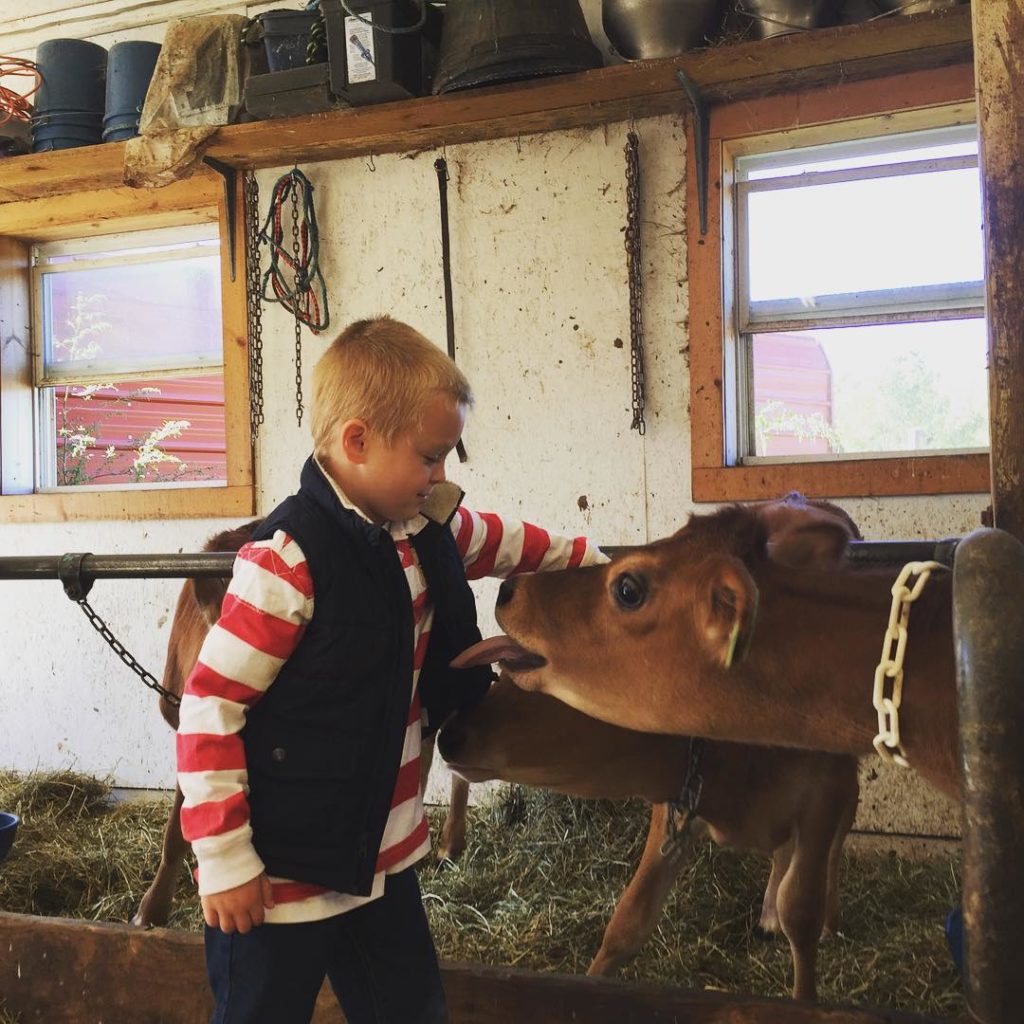Understanding life on a dairy farm comes down to understanding cows, and one of the most important parts of understanding cows is recognizing their lifecycle. It all starts with the birth of a calf.
When a calf is born, it is similar to humans in the fact that it is at its most vulnerable. A newborn Jersey will weigh around 50-60 lbs. and they don’t have a functioning immune system. The first three days of her life are incredibly important to give her a running start. We make sure she gets at least a couple good meals and that she is warm and dry. We make sure to keep newborns in a clean environment where they can flourish and start getting stronger. As the calf grows, we watch them closely for the first three months to make sure that they are getting stronger, learning to eat other foods, growing and socializing with other animals. At the end of the first three months the calf will be eating mostly dry food and we stop giving it milk to drink. At this point, most danger of getting really sick is over and in just a couple more months the calf will become what is known as a heifer.
Heifers are like human teenagers. They are growing fast so they eat a lot of food, their hormones are changing so they can be moody, and they love to get into trouble if given the opportunity (think getting out of pastures, getting into grain bins, and hay etc.). When a heifer turns 1 year old we start thinking about getting her pregnant. She still has some growing to do, but she is big enough and strong enough that having a calf is an option for her. If a heifer is small we will wait and begin breeding her later when she is bigger, but if you wait too long, it can actually cause complications to the pregnancy which can be very harmful to the cow and the new calf. Once she gets pregnant, she will carry the calf for 9 months, before she gives birth, at this point she is usually around 2 years old. After she gives birth, she becomes an official cow and joins the milking herd.
As a cow, she will milk in the herd for around 300 days, and then she will take 2 months off as she gets ready to have her next baby, and then she will begin milking again. Some people do not understand this cycle, but it is optimal not only for milk production but also for the health and well-being of the cows. If they take too much time off of milking then they can become too fat which will lead to illnesses and complications in her next pregnancy, some of which can even be fatal. Also, cows love to be milked, when they are in the milking herd they get the best food, they get to lounge with their friends all day, and they get massaged, and brushed daily. For them, this is the lifestyle they love.
Our cows are typically very healthy up to around 10 years old- this is much longer than the industry average of 4, and we attribute that to the individual care and attention that each cow gets here on our small farm. We love our cows, and their health is essential to what we do as dairy farmers. We try to make sure they are healthy and happy by giving them the care and attention they need at all stages of their life cycle.

If you have any other questions about cows, our farm, or the products we sell, feel free to email us at orders@freedomhillfarm.net. Thank you and God Bless!